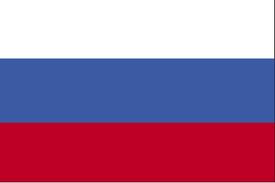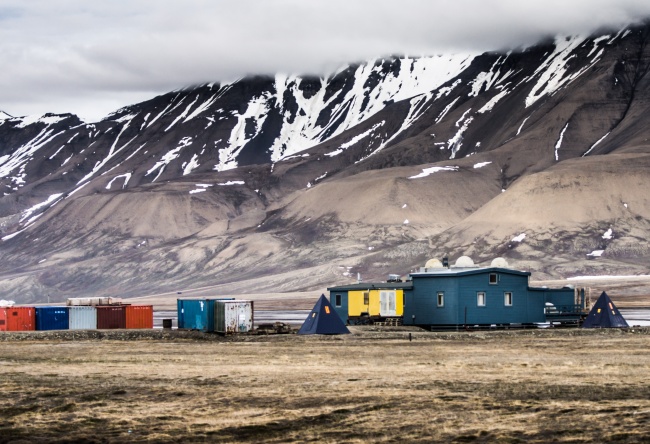|
|
|
|
|
|
|
|
Today's Congressional Action:
The House is in session and expected to consider non-Arctic legislation. The Senate is expected to consider the Energy Policy Modernization Act.
|
Kotzebue Construction Workers Stumble Across Archaeological Find. Two years ago, workers laying cable in a trench near a beach in Kotzebue encountered something unexpected. They'd stumbled upon a treasure trove of artifacts buried deep in the ground, including ivory combs, tools and spear points for whaling. In all, they found more than 4,000 pieces. Alaska Dispatch News
 Russian Icebreaker Could be Arctic HQ. Russian Icebreaker Could be Arctic HQ. Russia's Rosatom State Atomic Energy Corporation has offered the icebreaker Soveitsky Soyuz to the Ministry of Defence as a floating headquarters for Arctic military operations. The 148 meter (485-foot) vessel is expected to be ready for service later this year. It has two reactors that generate 171MW each providing 75,000hp to the three propellers and can sail at speeds of 20 knots. It can also crush ice up to three meters thick. Sovetsky Soyuz was laid down at Baltiysky Zavod shipyard in Leningrad, launched on October 31, 1986 and put in operation in 1989. It has been used to perform tourist voyages to the North Pole in 1991 and 1992, and in March 2002, was moored at Murmansk port to supply coastal assets with power, an historical first for the nuclear icebreaking fleet. In 2004, she was one of three icebreakers that took part in global warming research. Maritime Executive
Arctic Research Slow to Focus on Societal Needs. In recent years, the sea ice along the rugged coast of Nunatsiavut, Labrador, has become increasingly unpredictable, making it difficult and dangerous for the Inuit residents of the region to travel and hunt. So, the locals have partnered with a group of scientists, led by Trevor Bell, a geographer at Memorial University in St. John's, Newfoundland, to launch a research program called SmartICE. By combining satellite and ground-based data - some of which will be collected by sensors mounted on Inuit sleds - the initiative aims to provide real-time information about ice conditions that will benefit Inuit travelers, as well as shipping companies and researchers. The project is a great example of how Arctic scientists and stakeholders can collaborate on research projects that address societal needs, said Maribeth Murray, the executive director of the Arctic Institute of North America at the University of Calgary. Arctic Deeply
Natural Resources Ministry: Russia Plans to Remove Litter from Arctic by 2025. Work to clean up the territory and remove litter is underway in the Russian Arctic, RIA Novosti reported, citing Nuritdin Inamov, director of the Natural Resources Ministry's International Cooperation Department, as saying at an international conference in Tromso. "The clean-up will continue in 2016. We plan to remove and dispose of at least 8,000 tons of waste, including 1,000 tons from Novaya Zemlya archipelago. The program will be completed by 2025," he said. The Arctic
 The Arctic Islands Luring Scientists to the Top of the World The Arctic Islands Luring Scientists to the Top of the World. Norway's chain of Arctic Svalbard islands is trying to promote scientific research as coal mining, which was the backbone of the remote economy for decades, dwindles. The Washington Post
|
Legislative Action
No Arctic legislation was formally considered Friday.
|
|
Future Events
Marine Mammal Commission Arctic Listening Sessions, February 3, 5, 9, 11, 2016 (Locations include: Barrow, Kotzebue, Nome and Anchorage, Alaska, USA). The Arctic is changing faster than anywhere else on earth. How is climate change impacting the Arctic marine environment and subsistence hunting of marine mammals by Alaska Native communities? We will focus on these questions at a series of listening sessions in Alaska in early February. Our goal is to gain a better understanding of how climate change is impacting Alaska Native communities and the marine mammals upon which they depend, and hear your ideas on actions that can be taken in response.
Alaska Forum on the Environment, February 8-12, 2016 (Anchorage, Alaska, USA). The Alaska Forum on the Environment (AFE) is Alaska's largest statewide gathering of environmental professionals from government agencies, non-profit and for-profit businesses, community leaders, Alaskan youth, conservationists, biologists and community elders. The diversity of attendees and comprehensive agenda sets this conference apart from any other. Each year there are over 80 technical breakout sessions and sensational Keynote Events. There will be a full week of sessions on climate change, energy, environmental regulations, cleanup and remediation, fish & wildlife, solid waste, and more.
ARCUS DC Arctic Research Seminar Series, February 18, 2016 (Washington, DC). Does it seem as though the weather gods have gone crazy lately? It is not your imagination. The question on everyone's minds is why? And is it related to climate change? In this presentation, I will explain new research that links increasing extreme weather events with the rapidly warming and melting Arctic during recent decades. Evidence suggests that Arctic warming is causing weather patterns to become more persistent, which can lead to extremes such as droughts, cold spells, heat waves, and some flooding events.
5th Annual Fletcher Opening Arctic Conference, March 12, 2016. The Opening Arctic Conference builds on the Fletcher School's Warming Arctic International Inquiry series, to bring together high-level thought leaders from across disciplines, Fletcher's hallmark. Staged annually, Fletcher's event continues to address the foreign policy, economic, environmental and security implications of the opening Arctic, while dispelling myths.
** New this week** 15th Annual Arctic Health Science Seminar, April 1, 2016 (Anchorage, Alaska, USA). The American Society for Circumpolar Health will host the 15th Annual Arctic Health Science Seminar in Anchorage, Alaska. This event will include the annual meeting of the American Society for Circumpolar Health, the Robert Fortuine Memorial lecture, and the Albrecht Milan Foundation will provide the Albrecht-Milan Emerging Professional Award to one of the Arctic Health Science Seminar presenters. The call for abstracts is open through Monday February 29, 2016.
Alaska Rural Energy Conference, April 26-28, 2016 (Fairbanks, Alaska, USA). The Alaska Rural Energy Conference is a three day event offering a large variety of technical sessions covering new and ongoing energy projects in Alaska, as well as new technologies and needs for Alaska's remote communities. Building on the growing success, the Alaska Energy Authority and the Alaska Center for Energy and Power have joined forces again to organize and sponsor the 10th annual Alaska Rural Energy Conference.
14th IATS Seminar, June 19-25, 2016 (Bergen, Norway). The University of Bergen (UiB) is honored to host the 14th IATS Seminar in Bergen, Norway, from Sunday 19 to Saturday 25 June 2016 in co-operation with the Network for University Co-operation Tibet-Norway, an academic network with the universities of Oslo, Bergen and Tromsų as partners. The convenor is Professor Hanna Havnevik, Department of Culture Studies and Oriental Languages, University of Oslo, and Chair of the Network.
Inuit traditions are a repository of Inuit culture and a primary expression of Inuit identity. The theme for the 2016 Inuit Studies Conference invites Elders, knowledge-bearers, researchers, artists, policy-makers, students and others to engage in conversations about the many ways in which traditions shape understanding, while registering social and cultural change. The institutional hosts of "Inuit Traditions," Memorial University of Newfoundland and the Nunatsiavut Government, invite you to contribute to an exchange of knowledge to be held in St. John's, Newfoundland and Labrador, October 7-10, 2016. Presentations on all aspects of Inuit studies will be welcome.
|
|

  
4350 N. Fairfax Drive, Suite 510
Arlington, VA 22203, USA
External links in this publication, and on the USARC's World Wide Web site ( www.arctic.gov) do not constitute endorsement by the US Arctic Research Commission of external Web sites or the information, products or services contained therein. For other than authorized activities, the USARC does not exercise any editorial control over the information you may find at these locations. These links are provided consistent with the stated purpose of this newsletter and the USARC Web site.
|
|
|
|
|
|
|
|
|